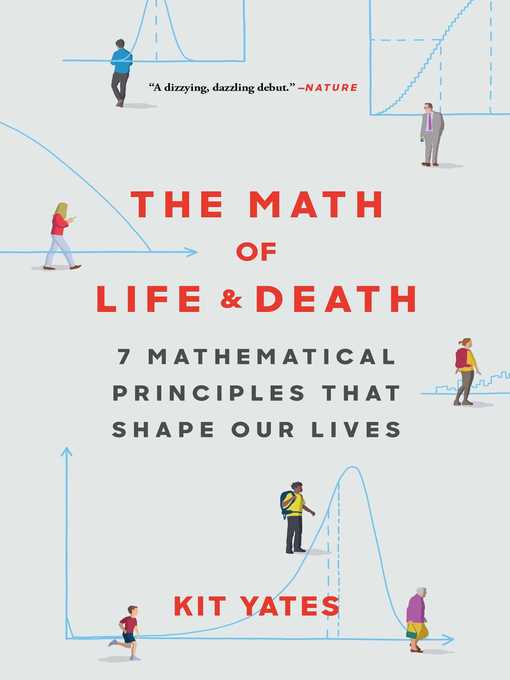
The Math of Life and Death
7 Mathematical Principles That Shape Our Lives
کتاب های مرتبط
- اطلاعات
- نقد و بررسی
- دیدگاه کاربران
نقد و بررسی

October 15, 2019
A welcome addition to the math-for-people-who-hate-math genre. In his first book, Yates, the co-director of the Centre for Mathematical Biology at the University of Bath, cheerfully promises to arm readers "with simple mathematical rules and tools that can help you in your everyday life: from getting the best seat on the train, to keeping your head when you get an unexpected test result from the doctor....We will also...observe math in action as we highlight the steps we can take to help halt the spread of a deadly disease." Evolution primed organisms to avoid danger; calculating has no survival advantage, so humans lack a talent for it, a deficit the author finds irresistible. Yates also looks at the mammogram anecdote, which serves as proof that even smart people mess up: A woman has a positive mammogram. If mammograms are 90% accurate and 1% of women have undetected breast cancer, what are the odds that this is bad news? Given a choice, many doctors will say 80% when the answer is about 9. They forget that 10% of the 99 healthy women will also test positive. Yates also points out the common mathematical errors that occur in the court system, where many fall for the "prosecutor's fallacy." For example, an accused person wears the identical shoe size as the criminal. Since only 4% of the population wears that size, the prosecutor claims that there is a 96% chance that he is guilty. Along with useful tips and intriguing examinations of a wide variety of algorithms (useful and useless), Yates loves delivering curious facts, in the vein of Freakonomics, and readers will be thankful. For example, almost every human possesses more than the average number of legs. Amputees lower the average, and no one has three. All but the stubbornly innumerate will enjoy this amusing mathematical miscellany.
COPYRIGHT(2019) Kirkus Reviews, ALL RIGHTS RESERVED.

October 21, 2019
Ponzi schemes, nuclear fission, and viral marketing are just a few of the topics covered in this savvy book from first-time author Yates, a senior mathematics lecturer at the University of Bath. Exposing the “shaky mathematics” behind the Body Mass Index and health-related diagnostic tools, Yates also offers skepticism of home DNA testing kits and the risk calculations offered by genome-testing companies. Yates considers how calculation errors and “pseudomathematical arguments” have led to wrongful convictions, including of Captain Alfred Dreyfus, condemned to life imprisonment in 1894 after an expert witness’s “abstruse mathematical analysis” linked him to a handwritten message offering French military secrets to the Germans. (Over a decade later, the famous mathematician Henri Poincaré pointed out a basic problem with the witness’s math, and Dreyfus was exonerated.) With fervor, Yates exposes the misuse of statistics and use of “mathematical misdirections” in patient-advice publications and scientific literature. Readers with backgrounds in math should particularly enjoy the heavier chapters, covering topics such as optimization and the seven Millennium Prize Problems, “considered to be the most important unresolved problems in mathematics.” However, any inquisitive and open-minded reader can enjoy this valuable primer on the use and abuse of numbers in the everyday world. Agent: Jason Bartholomew, Hodder. (U.K.)

























دیدگاه کاربران